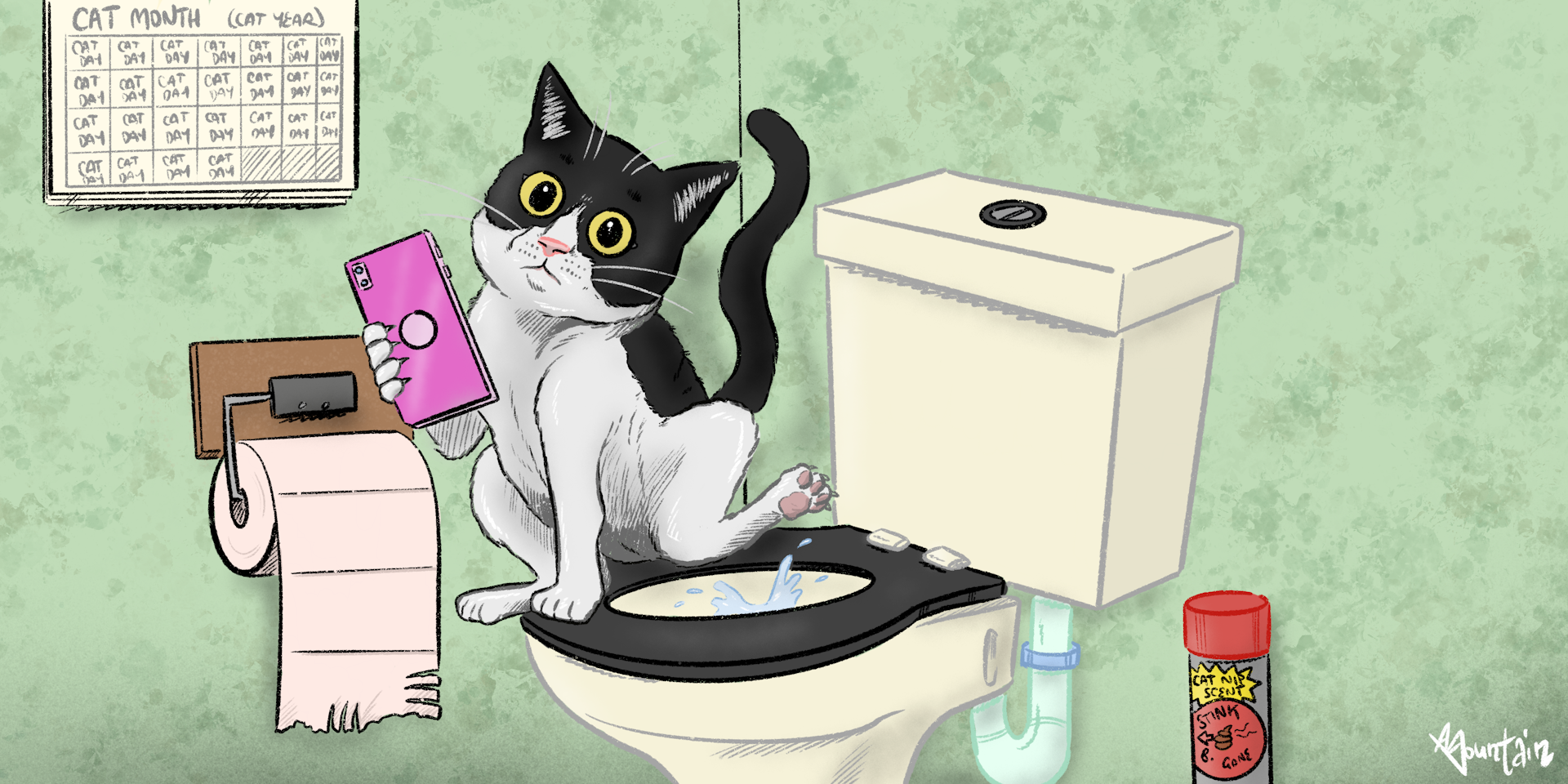Potential Risks of Flushing Cat Poop Down Your Toilet - Advice for Better Handling
Potential Risks of Flushing Cat Poop Down Your Toilet - Advice for Better Handling
Blog Article
In this article in the next paragraph you'll find more high-quality news related to Can You Flush Cat Poo or Litter Down the Toilet?.

Introduction
As feline proprietors, it's necessary to be mindful of how we dispose of our feline good friends' waste. While it might seem hassle-free to flush feline poop down the bathroom, this technique can have detrimental repercussions for both the environment and human wellness.
Alternatives to Flushing
Thankfully, there are more secure and more accountable methods to take care of cat poop. Consider the following alternatives:
1. Scoop and Dispose in Trash
The most usual approach of dealing with feline poop is to scoop it right into an eco-friendly bag and toss it in the trash. Be sure to use a devoted trash scoop and take care of the waste immediately.
2. Usage Biodegradable Litter
Go with eco-friendly pet cat clutter made from products such as corn or wheat. These clutters are eco-friendly and can be securely disposed of in the trash.
3. Bury in the Yard
If you have a yard, think about burying cat waste in a designated area away from veggie yards and water resources. Make certain to dig deep sufficient to avoid contamination of groundwater.
4. Install a Pet Waste Disposal System
Buy a pet garbage disposal system especially created for feline waste. These systems utilize enzymes to break down the waste, reducing smell and ecological effect.
Health and wellness Risks
In addition to environmental concerns, purging feline waste can likewise position health threats to people. Feline feces may have Toxoplasma gondii, a bloodsucker that can trigger toxoplasmosis-- a potentially severe illness, specifically for expecting women and people with weakened immune systems.
Ecological Impact
Flushing cat poop presents harmful microorganisms and parasites right into the water system, posing a substantial risk to marine environments. These pollutants can adversely affect marine life and concession water top quality.
Final thought
Responsible pet dog ownership expands beyond giving food and shelter-- it additionally includes correct waste administration. By avoiding flushing feline poop down the toilet and selecting alternative disposal techniques, we can minimize our ecological impact and safeguard human wellness.
Why Can’t I Flush Cat Poop?
It Spreads a Parasite
Cats are frequently infected with a parasite called toxoplasma gondii. The parasite causes an infection called toxoplasmosis. It is usually harmless to cats. The parasite only uses cat poop as a host for its eggs. Otherwise, the cat’s immune system usually keeps the infection at low enough levels to maintain its own health. But it does not stop the develop of eggs. These eggs are tiny and surprisingly tough. They may survive for a year before they begin to grow. But that’s the problem.
Our wastewater system is not designed to deal with toxoplasmosis eggs. Instead, most eggs will flush from your toilet into sewers and wastewater management plants. After the sewage is treated for many other harmful things in it, it is typically released into local rivers, lakes, or oceans. Here, the toxoplasmosis eggs can find new hosts, including starfish, crabs, otters, and many other wildlife. For many, this is a significant risk to their health. Toxoplasmosis can also end up infecting water sources that are important for agriculture, which means our deer, pigs, and sheep can get infected too.
Is There Risk to Humans?
There can be a risk to human life from flushing cat poop down the toilet. If you do so, the parasites from your cat’s poop can end up in shellfish, game animals, or livestock. If this meat is then served raw or undercooked, the people who eat it can get sick.
In fact, according to the CDC, 40 million people in the United States are infected with toxoplasma gondii. They get it from exposure to infected seafood, or from some kind of cat poop contamination, like drinking from a stream that is contaminated or touching anything that has come into contact with cat poop. That includes just cleaning a cat litter box.
Most people who get infected with these parasites will not develop any symptoms. However, for pregnant women or for those with compromised immune systems, the parasite can cause severe health problems.
How to Handle Cat Poop
The best way to handle cat poop is actually to clean the box more often. The eggs that the parasite sheds will not become active until one to five days after the cat poops. That means that if you clean daily, you’re much less likely to come into direct contact with infectious eggs.
That said, always dispose of cat poop in the garbage and not down the toilet. Wash your hands before and after you clean the litter box, and bring the bag of poop right outside to your garbage bins.
https://trenchlesssolutionsusa.com/why-cant-i-flush-cat-poop/

I'm very involved in Don’t flush cat feces down the toilet and I am hoping you appreciated the new blog entry. Loved our entry? Please share it. Help somebody else check it out. I am grateful for your time. Visit again soon.
Book An Appointment Report this page